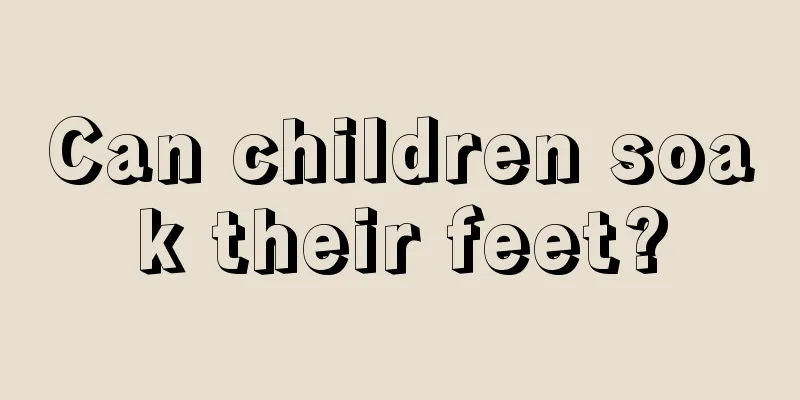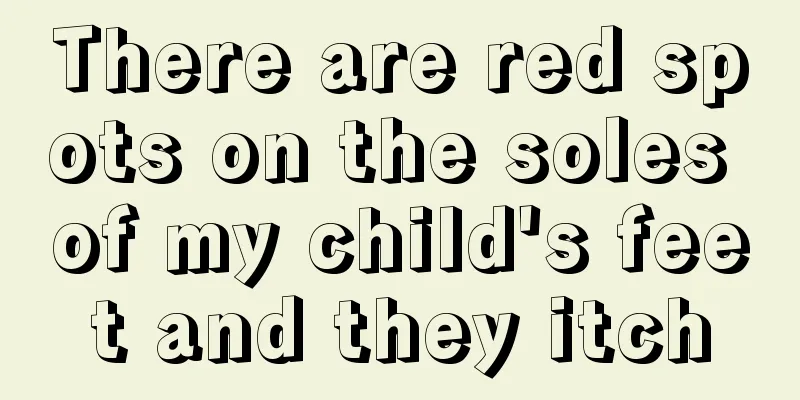Why does a four-year-old baby grind his teeth when sleeping at night?

|
Many parents will find some bad habits of their children when taking care of them, especially grinding their teeth while sleeping. Children grind their teeth regardless of age, and most of them start grinding their teeth after one year old. Many people think that teeth grinding is caused by parasites in the stomach, while some think that it is caused by poor growth of teeth. So what is the reason for a four-year-old baby to grind his teeth while sleeping at night? The reasons for a four-year-old baby's teeth grinding are very complicated. Let's analyze the reasons for a four-year-old baby's teeth grinding. One is mental factors. Emotional tension is the most common cause of bruxism. When fear, anger, resistance and other emotions are suppressed and difficult to express, they are hidden in the subconscious and expressed periodically through other means such as teeth grinding. It has been observed that bruxism is a common phenomenon among psychiatric patients. When you want to escape subconscious psychological pressure, you are likely to grind your teeth during sleep. The survey and analysis results of many scholars have also proved that patients with bruxism are more pessimistic than non-bruxism patients. Of course, this does not mean that all people will grind their teeth when the above situation occurs. There are individual differences. All I can say is that when you grind your teeth, you should look for the cause in this aspect. For example, if you are overly excited, nervous, angry, or your nerves are stimulated during the day, you will not be able to calm your mind when you sleep at night and may grind your teeth. If children play too excitedly during the day, or if people work too hard during the day and are busy and too tired before going to bed at night, although most of the cerebral cortex is in an inhibited state after falling asleep, some areas (such as the trigeminal nerve in the pons) will still be in an excited state. In this way, it will send a "signal" to command the facial chewing muscles to contract briefly and continuously. As a result, the sleeping person's lower jaw will move involuntarily up and down, left and right, forward and backward, making a "squeaking" sound of teeth grinding. The second is that there are parasites in the intestines or other reasons. When people are sleeping soundly at night, the parasites wriggle in the intestinal cavity, causing the nerves to be stimulated in some way, causing a nerve reflex. Ascaris can secrete a variety of toxins, such as neurotoxins, anaphylatoxins, hemolytic toxins and enzymatic toxins. In addition, certain metabolic products discharged by the worms will constantly stimulate the corresponding parts of the human brain while sleeping, causing some people's chewing muscles to continue to contract at night, resulting in bruxism. But not all people with parasitic diseases grind their teeth at night. Some people have irregular diet, which leads to gastrointestinal diseases and endocrine disorders, which may cause bruxism. In addition, some people sometimes eat too much at night, and a lot of food accumulates in the intestines when they go to sleep. The gastrointestinal tract has to work overtime. Due to the heavy burden, it will cause involuntary teeth grinding while sleeping. Children's nutritional deficiencies, blood sugar and calcium concentrations, endocrine disorders, allergies, etc. may all be factors that cause bruxism, and some cases show genetic factors. In addition, hyperuricemia, hyperthyroidism, allergies, irritable bladder, etc. may be related to bruxism.The third is abnormal tooth contact and diseases of the teeth and dentition. If dental caries are not treated in time, pulpitis and apical periodontitis may occur, causing pain, abscesses, and even premature loss of deciduous teeth, which will lead to unilateral chewing habits. Long-term unilateral chewing will cause uneven bite and occlusal disorders, which will lead to persistent bruxism. As well as malocclusion, such as crowded teeth, crossbite, open bite, etc., will make the occlusion uncoordinated and cause bruxism. If there is premature occlusal contact, the patient will often try to grind down the high point of the tooth surface. If this happens frequently, bruxism will develop over time. Bruxism, due to the long contact time and great force between the upper and lower teeth, often causes excessive wear of all teeth in the mouth, which is more obvious on the front teeth, and may lead to tooth sensitivity and pulp disease, or cause occlusal trauma, resulting in loose teeth and food impaction. In addition, the type of occlusion, the position of teeth, the looseness of teeth, the mandibular movement type, tooth shape and restoration, etc., all have a certain relationship with the occurrence of bruxism. The above explains the reasons why a four-year-old baby grinds his teeth while sleeping at night. When parents find that their baby is grinding his teeth, they should observe the physical symptoms, diagnose physical abnormalities, and then take measures to relieve teeth grinding. If teeth grinding still occurs after taking deworming medicine, they should go to the hospital for oral and dental examinations, and finally diagnose the disease and provide treatment. |
<<: How long does anorexia last in infants?
>>: How to treat a 2-year-old baby grinding his teeth while sleeping
Recommend
Treatment of diarrhea in six-month-old babies
Diarrhea in six-month-old babies is one of the di...
What should I do if my child has a hunchback?
Children are in the stage of development, and it ...
What to do if your child has allergic rhinitis and nasal congestion
Because the baby's nasal cavity is relatively...
Why does my child urinate less?
Children have a faster metabolism and should urin...
Can eight-month-old babies eat whole eggs?
Eight-month-old babies need to add complementary ...
What should I do if my child has thrombocytopenia?
What causes thrombocytopenia? Thrombocytopenia ca...
Examination and treatment of hand, foot and mouth disease
The children around us are greedy and love to pla...
What are the effects of drinking coffee on children?
Coffee is a very common drink in our daily lives,...
The thread connecting the gums to the upper lip of a child is broken
Because children are naughty and often run and ju...
What are the small bumps on my baby’s wrists?
Many parents now believe that children cannot alw...
What to do if the redness and swelling after vaccination
We all know that babies will go to the hospital t...
What is the reason for thinning hair in babies?
Thinning hair is a common problem among adults, a...
Is it good for children to eat more dragon fruit?
Dragon fruit is a delicious fruit that is rich in...
How much is the height and weight of a five-month-old baby
The healthy growth of the baby is the most ardent...
What can improve children's immunity?
Human immunity is generally related to genetic ge...









